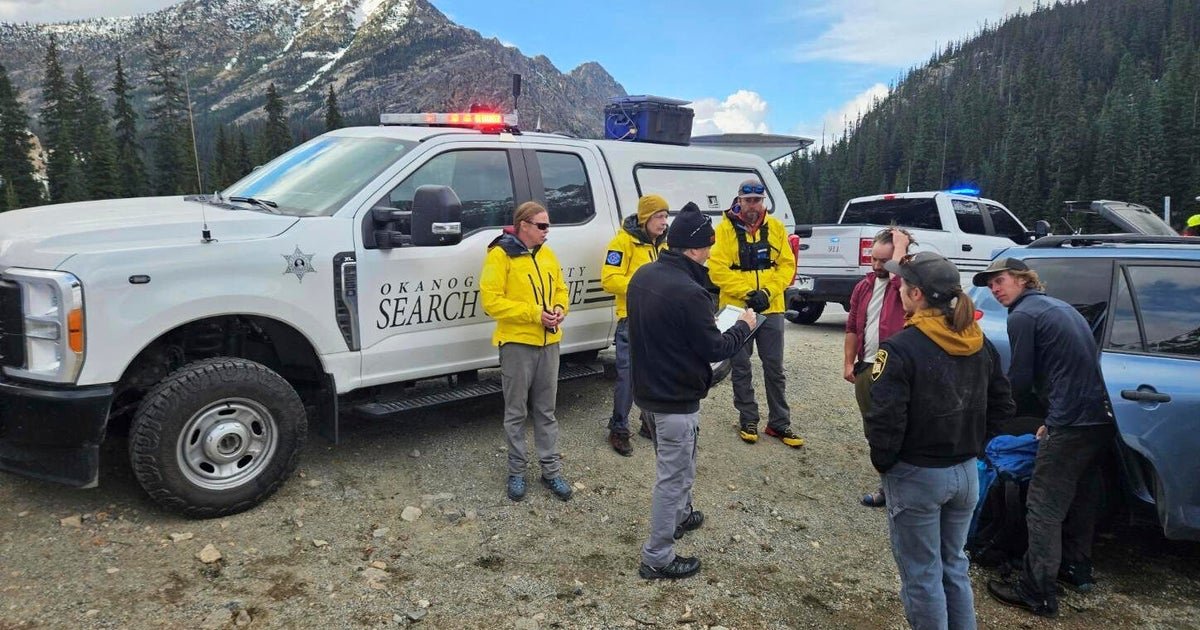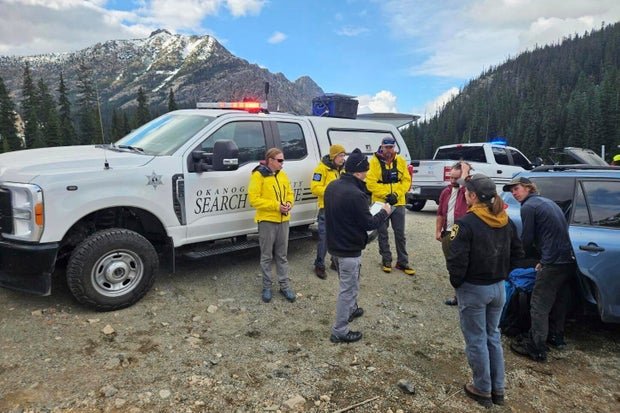[ad_1]
It was late in the afternoon and lightly snowing when four rock climbers, working their way up a steep gully between two peaks in Washington’s North Cascades Range, decided to turn around for a descent down the mountain that would end with three of them dead.
As they climbed down, the four attached their ropes to a piton — a metal spike pounded into rock cracks or ice and used to secure ropes — that had been placed by a past climber. As one of the men began rappelling off the piton, it ripped out of the mountain, sending all four falling past ice and snow and rock.
They fell some 200 feet, landing in a more sloping ravine where they tumbled for another roughly 200 feet before coming to a stop in a tangle of rope.
Three were killed by the fall. One — 38-year-old Anton Tselykh — was knocked unconscious.
Tselykh later awoke in the dark. It had been hours since the fall. And over the course of the next several hours, he extricated himself from the mess of ropes, gear and debris and trekked over rough terrain of rock and snow — with help from a pick-like ice tool — to his car.
He drove for some 40 miles before finding a pay phone and calling for help in Newhalem, an unincorporated community about an hour’s drive away. It was Sunday morning, eight hours since he regained consciousness.
Okanogan County Sheriff’s Office via AP
From a Seattle hospital Wednesday morning, Tselykh, recovering from head trauma and internal bleeding, told authorities what had happened. He was in satisfactory condition at Harborview Medical Center, meaning he was not in the intensive care unit, Susan Gregg, media relations director for UW Medicine, said in an email.
“The fact that he had a head injury, a severe head injury and internal bleeding, it is just amazing that he was able to make his way back to the highway and then get in his car and drive,” Okanogan County Undersheriff David Yarnell said, NBC News reported.
Tselykh’s survival “is miraculous to say the least,” he said.
Tselykh confirmed authorities’ theories of what led to the deaths of his three companions, identified as Vishnu Irigireddy, 48; Tim Nguyen, 63; and Oleksander Martynenko, 36.
A three-person search and rescue team had responded to the site of the fall following Tselykh’s call, said Cristina Woodworth, who led the team and spoke with the lone survivor by phone Wednesday. The team had followed coordinates from a GPS device the climbers had been carrying, which were shared by a friend of the men.
The rough terrain required a helicopter, which removed the bodies one at a time, Woodworth said. The helicopter’s flight through 16 miles of rugged, mountainous terrain took longer than usual — about an hour —due to harsh weather, CBS affiliate KIRO reported. Video of the aerial recovery showed the helicopter navigating blustery winds as it made its way to the climbers.
As responders pored over the recovered equipment, they found the piton still clipped into the climbers’ ropes, Okanogan County Coroner Dave Rodriguez said. Pitons are difficult to remove from rock, he said, and the anchor’s presence on the rope was a clue to what happened.
“There’s no other reason it would be hooked onto the rope unless it pulled out of the rock,” Rodriguez had said.
It’s still unclear whether the four had a backup anchor, which Joshua Cole, a guide and co-owner of North Cascades Mountain Guides, said is a common practice among climbers.
The four climbers were friends, some of whom had climbed together before and appeared fairly experienced, Woodworth said, adding that Tselykh was “obviously very much affected by this.”
Irigireddy was a vice president of engineering at the Fluke Corporation, a test equipment manufacturing company, which released a statement Wednesday.
“Vishnu was an extraordinary leader, and his loss is felt profoundly across our organization,” the statement read.
Martynenko’s wife, Olga, said Tuesday in a Facebook post that her husband, whom she referred to as Alex, also left behind their son. She shared a link to a fundraiser to help “during the most devastating time of our lives.”
“I still cannot believe that you are gone, my love.”
Woodworth said falls like this leading to three deaths are extremely rare. Two climbers were killed seven years ago in a fall on El Capitan at Yosemite National Park in California.
[ad_2]




